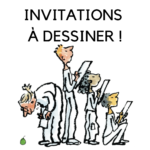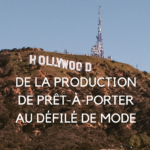A few thoughts on the cultural industry, the media and the entertainement industry and its current (r)evolutions. I started writting these blog posts while studying at UBC, Vancouver, Canada. I wrote my master thesis on coproductions for animation films in Europe. I kept on writing as I moved to San Francisco and now Paris.
- Dancing into the digital worldHow to best enjoy the show of people dancing on a stage? This question has been with me for quite some time now. Here are a few thoughts. TV vs theater Of course seeing a ballet in an opera house is ideal. But is it still worth it when one’s seat is all the way at the top of the theater with only an ensemble view? The mise en scene capacities of the director and the number of dancers on stage thus become key criteria to enjoy the performance. The focus of the dance show shifts from the art of movement to …
- Explaining flops – weather, censorship & holiday schedulesIf you answer yes to the following questions, you are probably French. Have you ever decided against going to the movies because it was sunny outside? Have you ever said on a rainy day that it was a movie-going type of weather? This type of reasoning deeply affects the box office of films, in particular in spring and summer. For example A Turtle’s Tale: Sammy’s Adventures was released in 2010 and grossed 1.1 billion Euros worldwide, a considerable accomplishment for a European animated film. The sequel should have been as big of a success. Unfortunately after 6 weeks of rainy summer, …
- A love letter to animationAnimation is celebrated each year by the lake in the French city of Annecy. Each edition is invigorating. So many passion driven individuals should they be newcomers or patrons, meet during a summery week in June. There are a variety of ways to experience the festival: as a volunteer (with the benefit of enjoying free access to the whole festival in exchange for a few hours of work per day), as a film critic (invited to special screenings and networking luncheons), as a professional (busy going from one meeting to the next in the market at the Imperial hotel) or as a …
- Invited to draw!
 The “sketchbook project” is an invitation sent out to anyone willing to contribute drawings to a universal library of sketchbook gathered by the organisation bearing the same name. How does it work? The participant after registering online will receive an empty sketchbook on which to draw. He/She will then send it back to the organisation that will include it in its collection. This library is both physical, wooden shelves covered in sketchbooks in Brooklyn, and digital, thousands and thousands of pages scanned and put online. This library is without borders, accessible by all and created on a voluntary basis. It …
The “sketchbook project” is an invitation sent out to anyone willing to contribute drawings to a universal library of sketchbook gathered by the organisation bearing the same name. How does it work? The participant after registering online will receive an empty sketchbook on which to draw. He/She will then send it back to the organisation that will include it in its collection. This library is both physical, wooden shelves covered in sketchbooks in Brooklyn, and digital, thousands and thousands of pages scanned and put online. This library is without borders, accessible by all and created on a voluntary basis. It … - Reenchanting the theatre experience
 3D was seen in the 2010s as the new way to recreate an experience worth an outing. Since, the trend has faded away as the perceived value does not match the ticket prices. According to the British Film Institute (BFI), the percentage of people who chose 3D over 2D dropped from 71% in 2010 to 37% in 2013. (1) “During the AFM [American Film Market, in California] it was shown that 3D does not work… except in China.” (2) As a matter of fact, 3D was pushed in China by the American majors as such entetainment is not possible to …
3D was seen in the 2010s as the new way to recreate an experience worth an outing. Since, the trend has faded away as the perceived value does not match the ticket prices. According to the British Film Institute (BFI), the percentage of people who chose 3D over 2D dropped from 71% in 2010 to 37% in 2013. (1) “During the AFM [American Film Market, in California] it was shown that 3D does not work… except in China.” (2) As a matter of fact, 3D was pushed in China by the American majors as such entetainment is not possible to … - Entertainment – a deeply social experienceA new era is opening to reinvent entertainment rules. For the music industry it meant shifting revenue streams from selling CDs to selling a unique experience that is to say concert tickets. The Internet provides listeners with near-to-free music through piracy (peer-to-peer file exchanges) or legal streaming (YouTube, Spotify, Deezer). In the same way the movie industry needs to evolve in the face of near-to-free home entertainment, either piracy (illegal streaming or downloading) or legal offers (Netflix, CanalPlay, HBOgo). “Memorable experiences are the ultimate scarcity.” (1) That might be the path to follow for the cinema. Going to the movie …
- A producer? What for?“Producers are useless these days.” You can do without them, finding money through crowdfunding and distributing through the Internet. To an extent it is true. It is now possible to create audiovisual projects without the help of traditional channels (film institutes, TV channels, theatres) that the producers are masters of. However as the process is getting easier, the amount of content available increases proportionally. It is regular economy principles. The offer largely exceeds the demand thus fostering competition. And the price of content drops. Yes, you can fundraise enough money to get started on a production with Kickstarter and the …
- Cinema and theme parksOut of curiosity I started looking up theme parks with attractions related to the movies. Of course Disney ranks first and all the more after acquiring Lucas Film, which will brought to their current catalog of potential rides Star Wars and Indiana Jones. In 2015 a new ride featuring Avatar should also be opened. Universal is running second and thanks to the support of Comcast, Universal is opening rides with Harry Potter and the characters from Despicable me. If you want to read more about this ongoing competition, here is an article from The New York Times and to learn how Disney theme …
- Master thesis – Is coproduction a European model for animated movies?“Master thesis – Is coproduction a European model for animation movies? ” by Raphaëlle Chaygneaud-Dupuy is licensed under a Creative Commons Attribution 4.0 International License.
- From manuscript to bookAfter attending a workshop on book publishing by Michael Katz, Tradewinds, I wanted to visually represent the different players in that industry and the whole process behind any picture book hold by kids.
- Hollywood – from producing clothes to organising fashion shows
 In the very first chapter of The big picture, Edward Jay Epstein summarizes in 20 pages the changes in business models that the American studios experienced. Below I tried to visually explain the differences between the two Hollywoods, the old and the new. In 1947, he explains, 3 major factors pushed the movie industry to drastically change: the anti-communist campaign that called to report any alleged communist to the authorities the anti trust trials that forced the studios to sell their theatres and therefore lose control of the whole value chain the emergence of a new technology and an alternative to the …
In the very first chapter of The big picture, Edward Jay Epstein summarizes in 20 pages the changes in business models that the American studios experienced. Below I tried to visually explain the differences between the two Hollywoods, the old and the new. In 1947, he explains, 3 major factors pushed the movie industry to drastically change: the anti-communist campaign that called to report any alleged communist to the authorities the anti trust trials that forced the studios to sell their theatres and therefore lose control of the whole value chain the emergence of a new technology and an alternative to the … - HONY – critical review of Humans of New York blogA few facts first HONY is a blog started by an amateur photographer Brandon Stanton in 2010. He takes around 3 photos a day, ads a caption with a little story about the person being portrayed and post them on his blog, his Facebook page, his Tumblr profile, his Twitter and his Instagram feed. On January 18th he had 11,760,000 followers on Facebook and the next day 20,000 more. He made 2 bestseller books out of these photos, HONY and Little HONY (portraying kids). He also contributed to some fundraising operations and he took a trip to Iran and later …
- Comparing 2 film landscapes – Lyon & VancouverHaving recently moved to Vancouver, Canada, I realized that the film offer was very different from the one in my home town Lyon, France. I thus got to the bottom of things and investigated via Allocine and Cinemaclock to support my observations. there is a greater diversity in terms of programming in France in both the countries of origin of the films and the types of films (5 documentaries in Lyon against 3 in Vancouver in a science centre called Omnimax) films are screened in more theaters simultaneously in France. In Lyon a hit film can be seen in 6-7 …
- TED – A critical reviewHow to get people excited about prime numbers A talk on prime numbers, doesn’t sound exciting, does it? Yet, TED has managed to bring hundreds of people together in a room for the very same talk. That is the magic of TED talks, the ability to bring a varied crowd on diverse topics ranging from science to product design or life experiences. This enchantment extends beyond the event itself enticing viewers to browse through the plethora of TED talks videos made available for free on Youtube. Icing on the cake: subtitles are provided in almost any language. Many already assessed TED’s success. …
- TV series – perceptual mapComment and I will update the map with your suggestions.
- Black Mirror – a TV series about too near of a futureWhy does Black Mirror works? The British TV series by Charlie Brooker explores the side effects of the 21st century’s drug: our black mirrors (TV, computer, monitor, smartphones, etc). Each episode brings the viewer to a future not too far from his current life, taking a thread of technology and pushing it to its limits. It is always spot on, not too satirical for us to believe in it and dark enough to make us feel uncomfortable. Maybe the reason why Black Mirror moves us so much is because it flirts with the uncanny valley. The principle of the uncanny valley …
- Music online? A couple of thoughts on a heated debateInternet has disrupted the classic model of the recorded music industry whereby an artist would record a CD, which would generate sells by being promoted on the radio and through live tours. Today people can have access for free, legally or not, to music and the sources of revenues are depleting. This challenge needs to be addressed by music producers who tended to either ignore the facts or stick to the status quo. New behaviour The younger generation is the one who largely changed behaviour. Their parents still listen to CDs on their stereo. The first change was the peer-to-peer …
- Advertising online – going under the radarFrom computer to mobile First we need to acknowledge a new trend: Internet users spend more and more time on their phones when surfing the web at the expense of their computers. That turning point happened in the fall of 2013 in the United States and is expected to happen in 2015 in the United Kingdom according to an article in the Economist issue of September 13th, 2014. This means a whole different strategy for media content providers. The devices are smaller, and consequently the size of the screen, and the consumers have less patience than when they are browsing …
- VOD vs theatre – a battle?I have been wrestling quite a bit in the past months with the idea of the VOD being the new model to enjoy a movie… but I can’t get my mind around it. I am among the religious movie-goers for whom pressing pause, small screen, surrounding noise, comments would just kill the magic of that suspended moment that the film represents. But I need to step aside from my own habits to try and understand the current trend. Context Netflix’s arrival in France in September 2014 was synonymous of fear and regrets (for not having taken action earlier). Canal+ seems …
- Overcoming privacy issues in a world of connected objectsFirst let’s lay the foundation with some definitions. You have probably noticed that your browser proposes you links to click on as soon as you start typing based on your previous search. You probably know that an algorithm on search engines for flight tickets remembers your search and enables the prices to go up if you do the same search again on the same computer. You might have asked your browser to remember your passwords out of convenience. But sometimes it feels that your web browser know maybe a bit too much about you… This is all enabled by cookies. …